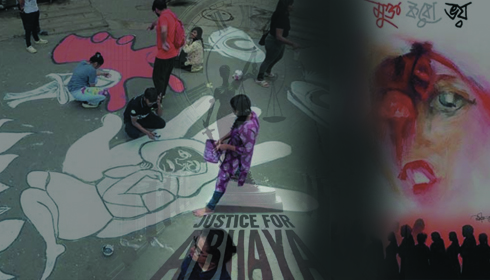
CBI Faces Intense Scrutiny Over Doctor's Murder Probe
The Central Bureau of Investigation (CBI) faces tremendous challenges in its probe into the rape and murder of a female doctor at Kolkata's RG Kar Medical College. This high-profile case, which resulted in the arrest of a civic volunteer and implicated senior authorities, sparked public outrage and demands for transparency and justice. However, delays in the CBI's proceedings and worries about evidence tampering have heightened public sentiment, prompting campaigners to draft a "People's Chargesheet" seeking responsibility and timely justice.
The college's emergency department found the doctor's lifeless body on the fourth level. Kolkata Police quickly arrested a civic volunteer accused of committing the murder. However, later findings prompted the Calcutta High Court to refer the case to the CBI, stressing the necessity for an unbiased probe. By October 7, 58 days into the investigation, the CBI had issued a preliminary chargesheet citing 11 pieces of evidence against the accused, including DNA, CCTV footage, and forensic findings linking him to the crime. However, the CBI is still examining the involvement of more persons as well as alleged evidence tampering by case authorities.
As the CBI conducts its investigation, some of the problems it faces have sparked criticism from the public and the victim's family. There have been allegations of evidence tampering by Sandeep Ghosh, the previous principal of RG Kar Medical College, and Abhijit Mandal, the officer-in-charge of Tala Police Station at the time. The chargesheet also suggests that a larger conspiracy may be at play, necessitating further investigation. Despite questioning more than 250 people, the CBI has yet to make any more arrests or produce a thorough chargesheet, raising worries about the investigation's pace and efficiency.
The delay has fueled dissatisfaction among activists, doctors, and civic groups, who claim that the CBI's progress has been slow. Several organizations, including the Joint Platform of Doctors (JPD) and Abhaya Manch, have called for public action, fearing that the lengthy inquiry process is obstructing justice. They have organized demonstrations in Kolkata and other areas under the banner "Ignite the Flame of Protest" to express their discontent and demand speedier legal proceedings. Activists claim that evidence manipulation and administrative apathy have jeopardized the probe, with state officials and political pressure reportedly sabotaging efforts to uncover the facts.
Protestors are preparing a symbolic "People's Chargesheet" for delivery on November 9, three months after the tragic tragedy, in response to perceived delays and gaps in the investigation. This approach demonstrates a concerted effort to hold the authorities accountable and raise public awareness of the matter. The organizers of this event, including JPD representatives, have declared plans to gather thorough evidence and testimonials about the incident, which will be presented in a public forum modeled after a courtroom. We aim to express the public's concerns and demands for a transparent and thorough investigation through this "People's Chargesheet".
Legal delays and procedural hurdles continue to impede the case's progress in court, adding to its intricacy. On November 5, the Supreme Court, which is in charge of the probe, will hold its next hearing. However, concerns are growing that the Chief Justice's upcoming departure may further impede proceedings. Given this judicial uncertainty, the JPD and other organisations are determined to intensify their protests to maintain scrutiny of the probe.
The RG Kar Medical College case has become a rallying point for broader requests for justice and responsibility in West Bengal, resulting in rallies similar to previous large-scale protests for women's safety. Citizens have conducted nocturnal vigils and public meetings in several sites, including Jadavpur, Behala, and College Street, to voice their displeasure and sympathy for the victim's family.
As public pressure grows, the CBI faces a watershed moment in this high-stakes probe. The handling of this case could potentially impact public trust in the court system and investigative agencies, particularly if the allegations of cooperation or deliberate mishandling of evidence prove to be accurate. Presenting the People's Chargesheet in the coming days serves as a reminder of public accountability and a symbolic gesture to prevent similar delays and obstacles in future cases.
There is still hope for justice thanks to the Supreme Court's monitoring, but residents and activists' urgency underscores the need for systemic reforms to prevent administrative and procedural inefficiencies from delaying justice.